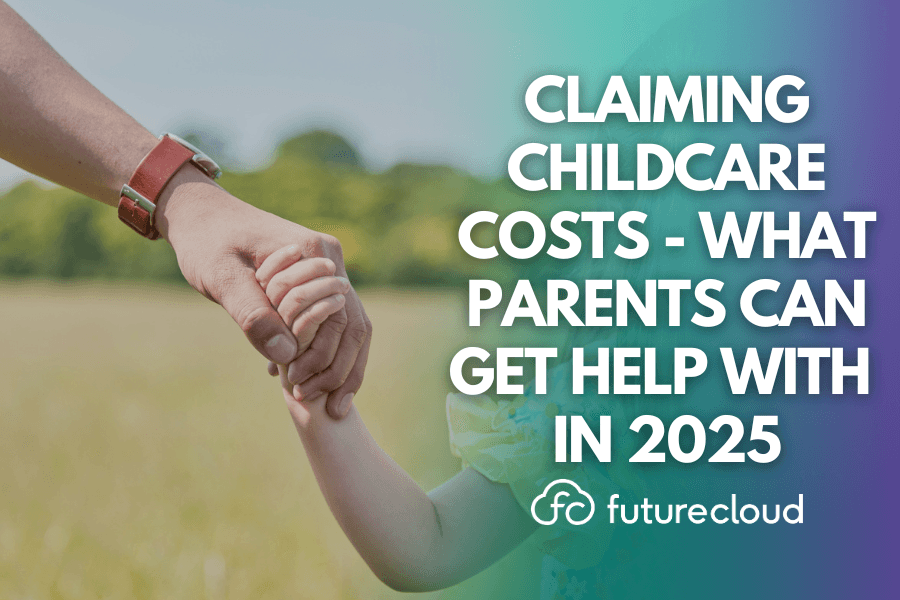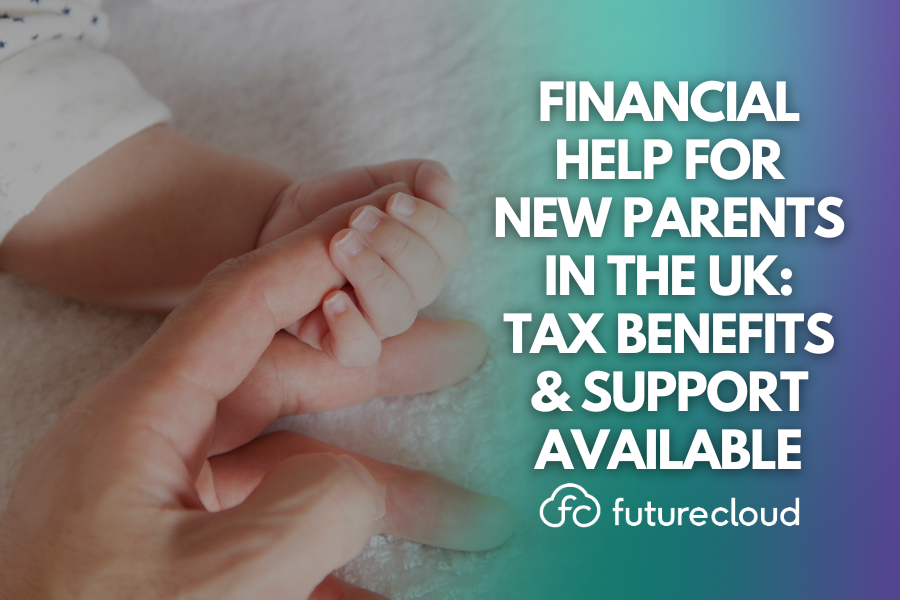Childcare is one of the biggest expenses for working families, but there is help available. In 2025, parents in the UK have access to several schemes that can reduce the cost of childcare, depending on their income and working status.
At Future Cloud, we want to help families and self-employed individuals understand how to claim the support they’re entitled to, and how it fits into their overall tax situation.
Here’s a breakdown of the main options available in 2025:
1. Tax-free childcare
This one’s for working parents (including the self-employed!) earning under £100,000 each per year and at least £167 a week.
- You pay into a childcare account online.
- For every £8 you contribute, the government adds £2, up to £2,000 per child per year (or £4,000 if your child has a disability).
- It covers children up to age 11 (or 17 if they have a disability).
- It’s available to employed, self-employed, and company directors.
It’s a great option if you pay for regular childcare, like nurseries, after-school clubs, childminders etc. But heads up, you can’t use this alongside Universal Credit childcare help or Childcare Vouchers, so it’s worth checking which one gives you the most support.
2. 15 and 30 hours of funded childcare
From September 2025, the government is expanding its free childcare hours for working parents in England:
- 15 hours per week from 9 months old to 2 years (available now for some)
- 30 hours per week from age 3–4 (existing scheme continues)
This support is available during term time (38 weeks per year), though some providers may stretch the hours across the whole year.
You must meet income and working requirements, generally, each parent must earn the equivalent of 16 hours a week at minimum wage.
This is separate from Tax-Free Childcare, but you can usually use both together (e.g. Tax-Free Childcare to cover additional hours or wraparound care).
3. Universal Credit childcare support
If you’re on Universal Credit, you may be able to claim up to 85% of your childcare costs, up to:
- £1,014.63/month for one child
- £1,739.37/month for two or more children
Good news, from 2024 this support is now paid upfront, rather than in arrears, which makes a big difference for managing cash flow.
You cannot claim Tax-Free Childcare if you’re receiving this support. The best choice depends on your income and hours worked.
4. Childcare and your tax return
We often get asked if you can claim childcare as a business expense if you’re self-employed or a company director. The short answer is not usually.
- Standard childcare (like nurseries, after-school clubs) is classed as a personal expense
- In rare cases, e.g. if you run a workplace nursery or employ a nanny through your company, there may be more tax-efficient setups
Still using the old Childcare Voucher scheme through your employer? If you joined before the cut-off in 2018, you can keep using it as long as your employer still offers it. For basic-rate taxpayers, it can sometimes work out better than Tax-Free Childcare.
Are you using the best option for you?
If you have any questions or require further information, feel free to get in touch with us!
And don’t forget to follow us on social media for the latest updates, tips, and more!

